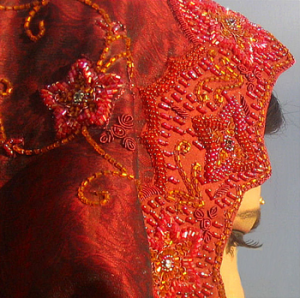‘Honour’-Based Violence
What is ‘honour’-based violence?
 ‘Honour’-based violence is a term used to describe violence committed by families or communities against a member, usually a woman or girl, who they feel has not followed what they believe to be the correct code of behaviour and has caused dishonour to the family. Some people object to the term, ‘honour’-based violence, as they feel there is no real honour in hurting or threatening family members. ‘Honour’-based violence happens because of gender inequality in families and communities, where women are denied the right to have choice and control over their own lives.These crimes of violence can include assault, imprisonment or murder. So-called ‘honour’ crimes are more common against women and girls because they tend to be made more responsible for carrying the family’s virtue, but can happen to men and boys as well. ‘Honour’-based violence includes early and forced marriage, dowry-related violence and Female Genital Mutilation.
‘Honour’-based violence is a term used to describe violence committed by families or communities against a member, usually a woman or girl, who they feel has not followed what they believe to be the correct code of behaviour and has caused dishonour to the family. Some people object to the term, ‘honour’-based violence, as they feel there is no real honour in hurting or threatening family members. ‘Honour’-based violence happens because of gender inequality in families and communities, where women are denied the right to have choice and control over their own lives.These crimes of violence can include assault, imprisonment or murder. So-called ‘honour’ crimes are more common against women and girls because they tend to be made more responsible for carrying the family’s virtue, but can happen to men and boys as well. ‘Honour’-based violence includes early and forced marriage, dowry-related violence and Female Genital Mutilation.
Female Genital Mutilation (FGM)
What is FGM?
Female Genital Mutilation is the name for ‘procedures involving the partial or total removal of the external female genitalia or any other injury to the female genital organs for non-medical reasons’. It is a harmful cultural tradition and not part of any religion. It is practised in 28 countries in Africa and some in the Middle East and Asia. FGM mostly takes place on girls aged 5-12, although it can be done at birth and up to the birth of a woman’s first child. In Sheffield young girls in Somali and Kurdish communities are particularly at risk. Communities tend to use local names such as ‘sunna’.
It is illegal to practise FGM in the UK or to take girls out of the UK for FGM.
There is a 14 year prison sentence for anyone performing, arranging or assisting FGM, even if it is legal in the country where it is performed.
FGM is a painful, dangerous and unnecessary practice, which can have terrible long-term effects on girls and women physically and psychologically. In the short-term it can result in trauma, severe pain, bleeding, infection and death. Long-term consequences can include: severe birth complications, problems during sex and menstruation and disability.
FGM is often practiced by loving families in the belief that they are doing the right thing for their child and to maintain their family honour in the community, as part of their cultural tradition, practiced for generations. The UN describes some reasons behind the practice as:
- Sociological: as an initiation for girls into womanhood, social integration and the maintenance of social cohesion
- Hygienic & aesthetic: where it is believed that the female genitalia are dirty and unsightly
- Sexual: to control or reduce female sexuality
- Health: in the belief that it enhances fertility and child survival
- Religious: in the belief that it is a religious requirement
- Socio-economic: where FGM is needed before marriage, (and marriage is a necessity to survive) and it may be the circumciser’s main source of income
If you are worried that you are at risk of FGM
Nobody has the right to cut your body or hurt you in any way. Female Genital Mutilation is against the law in the UK and is taken very seriously. If you are at all worried, talk to a teacher, nurse or another adult you trust outside your family.
Signs that you are at risk of FGM are:
- if older sisters or other female relatives in your family have had it done
- if your family is planning a long trip back to your family’s country of origin
If you have had FGM done
You can seek medical advice and help from specialist health services. There are 15 specialist clinics around the UK and in some of these you can have a reversal procedure (if this is right for you).
If you are worried that a child is at risk of FGM
Over 20,000 girls and young women under 15 are estimated to be at risk of Female Genital Mutilation in the UK(FORWARD). If you are worried about a child or young person:
talk to them about your concerns using clear and simple language
make it clear you’re happy to listen to them, if they ever want to tell you anything
ring Children’s Safeguarding Hub on 0114 273 4855
Find out more on the UN website or download the GEO FGM Factsheet.
Organisations
Foundation for Women’s Health, Research and Development (FORWARD): 020 8960 4000
London-based campaign and support organisation for African girls and women, who focus on tackling FGM, and forced and child marriage.
Ashiana Sheffield: 0114 255 5740
Mifumi: International organisation, based in Uganda and Bristol, supporting the needs of women and children affected by domestic abuse and bride-price violations



